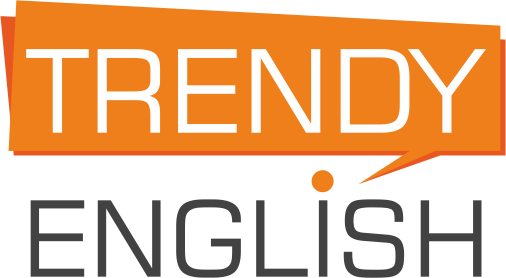About the conference
Are you looking for ways to motivate your students to do their homework? If so, you're not alone. Getting students to do their homework regularly can be a source of frustration for teachers. We know students who consistently complete homework will achieve more academically, particularly in high school, and students who don't do their homework will falter.
As a teacher, you want your students to benefit from good work habits — for success in the classroom and life. After all, effective homework strategies teach responsibility and self-discipline while instilling confidence and motivation. So how do you make an impact? What are your options?
As a teacher, you want your students to benefit from good work habits — for success in the classroom and life. After all, effective homework strategies teach responsibility and self-discipline while instilling confidence and motivation. So how do you make an impact? What are your options?
At this Trendy English conference you will get the answers to these and some other questions related to effective homework strategies and practices.
We will discuss such important issues as:
We will discuss such important issues as:
- the volume of ho
mework teachers are supposed to assign; - different types of homework activities that are usually assigned for offline and online homework;
- resources that can be used to develop learner autonomy;
- best practices that can make a homework exercise a really involving and productive activity.

You will get:
- homework strategies and techniques gleaned from experienced teachers
- solutions that can help achieve teaching goals and improve students' performance
- a wide range of homework activities for different age groups
September 27, Sunday
Programme
10:00-16:30 Moscow time
10:10-10:50
10:10-10:50
(No) secrets of involving and productive homework
Tatiana Odintsova is a CELTA, CELTA YL and Delta (1&2) certified teacher at Specialized Study and Research Centre of South Federal District (Rostov-on-Don). She has been teaching English as a foreign language for 12 years to students of all ages (7+ y.o) and levels at both private and state educational institutions. Tatiana is a Russian State Exam expert and Cambridge CELT-P/CELT-S tutor. Her main areas of interests include critical thinking skills, exam preparation and CLIL.
"Page 12, exercise 4, read and translate the text, exercise 5 open the brackets ", - you look up at the children as you are telling them their homework for tomorrow. "Any questions?" Silence, the crickets. And no enthusiasm in your students' eyes. What if you change your own attitude to homework? What if you hand in some responsibility to your students? In this workshop, you are going to learn several homework ideas that can inspire your learners and ignite learning autonomy, no matter what age or level you are teaching.
10:40-11:05
10:40-11:05
Homework for adults: to give? Of course, to give! (Episode 1: Exam preparation)
Natalia Ladygina is an English teacher, teacher trainer, CELTA and CELT-P tutor, speaking examiner, Exams Track Coordinator in "Teachers Teach Teachers" – an international community for keen English teachers who want to brush up on their English and improve teaching skills at the same time.
Natalia enjoys teaching adults and knows how to help them learn and grow to achieve their goals.
Natalia enjoys teaching adults and knows how to help them learn and grow to achieve their goals.
When my adult students tell me they want to sit an exam in the near future, it means that a conversation about homework already looms on the horizon. Hated, loved, ignored, left for the last moment, revisited and resubmitted… Homework might either become a major source of frustration for busy adult learners or an effective tool to incorporate small and manageable steps towards the goal into an everyday routine. It all starts from a definition of the word "homework"…
11:10-11:35
11:10-11:35
Homework as a means of establishing connection with the real world
Olga Tsareva, teacher, teacher trainer, material developer. Olga has 15 years of teaching experience. Mainly focuses on teaching pre-primary and primary students
A talk will be focused on the ways of working with Primary students in order to create meaningful contexts for what they do at home. Students find out that their English can be used in real life. They can share what they think and get heard. That turns out extremely motivating both for the students and the teacher
11:45-12:10
11:45-12:10
Lexical Homework Activities
Alex Walls is the Director of Studies at Windsor English Language School and holds CELTA and Delta. He has presented at conferences in Russia and online on a variety of topics from using L1 to teaching the iGeneration. He is the recipient of the IATEFL LAM SIG scholarship for 2020.
An increasing number of teachers are aware of and enthused by the lexical approach. However, while books, materials and webinars often focus on using the lexical approach in the classroom, little attention seems to be given to what should be done outside the classroom. In this session we will look at some simple, high leverage activities to help students utilise a lexical approach away from the classroom.
12:15-12:40
12:15-12:40
Homework for adults: to give? No, not to give! (Episode 2: lifelong learning)
Anita Modestova is a CELTA qualified English teacher, psychologist, and business trainer. She's worked with all the levels and ages and now specialises in teaching adults (General English). She works both offline and online, teaches groups and has one-to-one lessons. Her favourite levels to teach are Beginner and Elementary and she implements the Lexical Approach in her teaching.Anita also delivers seminars on how to build your career as a self-employed teacher and manages Teachers Teach Teachers - a community for keen English teachers who want to brush up on their English and improve teaching skills at the same time.
When my adult students tell me they don't have time for homework I believe them. Why? - Well, I hardly ever have time for it myself. In this talk I'm going to explain why I believe that it's ok for adults not to do homework, have a look at how teachers learn English (spoiler: they don't do homework!), and share some ideas on what our adult students can actually do apart from the lessons.
12:45-13:10
12:45-13:10
Simple Ways to Use Real Life Materials to Set Effective and Personalised Homework
Claire Collis, an experienced Business English Teacher, Technology Teacher Trainer and Language Coach. She balances her teaching and training work with her business development role as MD of The ELT Skills Academy. Having completed her PGCE and DELTA, she is currently working on her thesis for her MSc Digital Education.
As teachers, we all know that learning (especially when self-directed, as homework tends to be) is far more effective when personalized. We also know that creating personalized work for a whole timetable of classes can be incredibly time-consuming and difficult to sustain. In this short talk I will take you through the framework I use regularly with my Business English and Entrepreneurial Teen students. This framework enables them to use materials from their real lives to create their own individualized homework , making it effective for their specific learning needs and saving me time. Ideal for teachers of older teens/adults.
13:20-13:45
13:20-13:45
Happy Hour
13:50-14:15
13:50-14:15
What types of workbooks are teachers' best friends and why?
Ludmila Gorodetskaya, Candidate of Philology and Doctor of Cultural Studies, Professor of the Faculty of Foreign Languages and Area Studies, Lomonosov Moscow State University. Ludmila works as Senior ELT Consultant in the Representative Office of Cambridge University Press in Moscow.
The speaker will consider several types of workbooks available for young learners, teenagers and adults. The major types today are paper versus online WBs, with or without additional digital practice, those that provide sheer practice of language material or contain creative activities such as games, puzzles or mental maps. Special attention will be given to the types of projects that are designed differently for different age groups and purposes.
14:20-14:45
14:20-14:45
Homework: Involving students by giving them choices
Elisabeth Jackson is a Delta-qualified teacher, academic manager and trainer. Her interests include learner autonomy, the lexical approach and listening. She's been based in Moscow since 2018, having previously lived and taught in Vietnam and Bulgaria. She's also a keen language learner.
How to engage students with homework? Is that even possible? We'll look at why students can thrive when given choices about homework, and how to actually do this with your students. The session includes practical tips for immediate use with your students.
14:55-15:20
14:55-15:20
Maximize Language Learning Time
Nadezhda Stokolyas, an English teacher, the author of educational articles and courses for students of different age groups and EFL teachers. She organizes CPD events for teachers in Togliatti and presents at webinars, regional and international conferences. Nadezhda blogs on ELT at https://vk.com/tiptoptutor
Today students become aware of their own learning preferences and differences so it's important to get them to reflect how they are learning.
Let's discuss
● what strategies help teachers provide opportunities for learner independence, responsibility and choice;
●how school-home involvement make learning process more meaningful, purposeful and motivating;
And let's plan activities which take the in-the-school experience into the world outside.
Let's discuss
● what strategies help teachers provide opportunities for learner independence, responsibility and choice;
●how school-home involvement make learning process more meaningful, purposeful and motivating;
And let's plan activities which take the in-the-school experience into the world outside.
15:25-15:50
15:25-15:50
No home - no result
Maria Tsoy is a teacher of English and a teacher trainer, a recognized expert in early language developement and Cambridge YLE preparation.She has designed a system of natural language aquisition known as EXPLORER METHOD.
How to achieve significant results without pushing your students to do any homework? Is it ever possible to make them do their homework? What kind of homework are they eager to do? I have some answers to those questions :)
15:55-16:25
15:55-16:25
Engaging and creative homework
Oksana Novozhilova and Marina Kleenkova
-Running a private language club for 7 years
-Teaching experience for more than 18 years
-Authors of a course for VYL
-State Exam assessors
-Speakers of conferences
-Running a private language club for 7 years
-Teaching experience for more than 18 years
-Authors of a course for VYL
-State Exam assessors
-Speakers of conferences
- Why to assign HW
- Why HW plays a significant role. The topic of debate
- Importance of HW in learning process to students success and progress
- how to check HW
- some tips to do well
- Why HW plays a significant role. The topic of debate
- Importance of HW in learning process to students success and progress
- how to check HW
- some tips to do well
Conference language is English.
Registration
The price is 1100 RUB.
After the payment, please check your email and find a letter from [email protected].
After the payment, please check your email and find a letter from [email protected].
Contacts
Banking details
ИП Пересада Е.В.
Юридический адрес: Москва, ул.Озерная, д.9, кв.89
ИНН 740300876280 ОГРНИП 308504704600032
Р/С 40802810200000935415 Банк АО «Тинькофф Банк»
к/сч 30101810145250000974 БИК 044525974
Юридический адрес: Москва, ул.Озерная, д.9, кв.89
ИНН 740300876280 ОГРНИП 308504704600032
Р/С 40802810200000935415 Банк АО «Тинькофф Банк»
к/сч 30101810145250000974 БИК 044525974
Click to order
Total:
